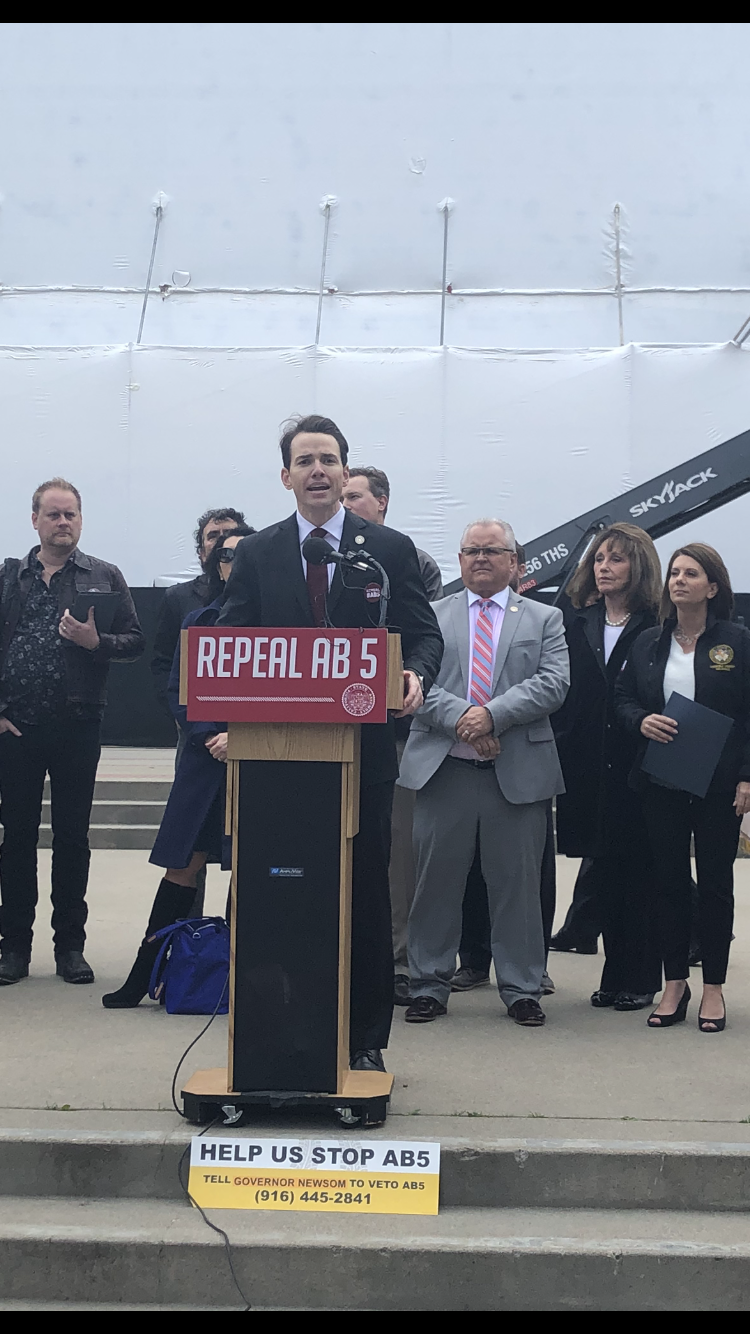
Closed Captioning symbol
ADA Protected Industry Threatened By AB 5
Independent signers and close captioning workers at risk under new law
By Katy Grimes, January 16, 2020 8:20 am
California Assembly Bill 5 was signed into law in September, 2019, and became effective January 1st, 2020.
Most of the opposition to comes from the trucking industry and rideshare companies Uber and Lyft. However, AB 5 also limits freelance writers and photographers to 35 submissions annually per media outlet, and will serve to significantly limit Californians’ ability to work as independent contractors and freelancers. It was revealed during Senate debate in September that the AFL-CIO wrote AB 5.
The bill broadly codified the definition of an employee that the California Supreme Court established last year in a case involving two delivery drivers who sued the Dynamex Corporation for classifying them as independent contractors instead of employees.
“Unfortunately, the bill was haphazardly written and rushed through the Legislature,” said Nanci Linke-Ellis, with the Hearing Loss Association of America, in a recent article.

Linke-Ellis warns that professionals in the Hearing Loss industry “include court reporters, captioners, and sign language interpreters, a majority of whom prefer the independence and flexibility of deciding when and where to work.”
“It should have been designed to benefit workers who do on-site labor for one employer and whose duties are assigned and managed by that employer, Instead, the language of the law does not account for the way tens of thousands of freelance professionals in California work.”
California Globe spoke with the owner of an agency providing real-time close-captioning for the deaf. He warned that there are many more impacted industries and independent contractors affected by AB 5:
The owner points out that many who receive the services of sign language interpreters and closed captioning are poor, and frequently immigrants. His closed captioning company provides services in three languages. He notes that the disabled are a protected class as well.
“Many service providers work five hours here, and five hours there,” he said. “Even those who work for a company, it’s usually a mom-and-pop-shop which can’t afford benefits.” To avoid full time status, he said the owners would have to limit or cap hours on the employees, leading to a reduction in services.
“We’re all struggling to pay our own bills, and are a total grass roots group,” he said. They don’t have any professional association representing them, and are trying to navigate AB 5, and their opposition to it, by themselves. “We were surprised by AB 5 after it was passed,” he said.
California Globe asked the agency owner if they have approached Assemblywoman Gonzalez with their unique exemption need. He said they have not – “we are all grass roots and because we are not licensed, there is no association for us to organize through.” He also said that because Gonzalez has been so combative with people and groups expressing their opposition to AB 5, “there is no reason to. We’ve contacted other Assembly members, but they appear afraid to go against her… it’s political suicide.”
“There is already a worsening shortage of qualified Communication Access Realtime Translation (CART) providers and sign language interpreters to help people with hearing loss,” Linke-Ellis wrote. “Realtime captioners in California will face these restrictions working not only within the State, but also working remotely for out-of-state agencies.) Captioners may elect to leave the profession or move out of California. In addition, for agencies that act as referral services nationwide, out-of-state captioners who work remotely helping to serve our State don’t want to be made employees, and we would likely lose their availability. The potential for disruption of services will be quite devastating.”
California Globe attended the Governor’s Budget Briefing last Friday, and there were three sign language interpreters rotating during the nearly three-hour press conference. We wondered if they are full-time state employees or freelance independent contractors.
- California Lawmaker Making the State More Hostile to Business - April 18, 2024
- California Democrats’ Backdoor Reparations Scheme - April 17, 2024
- California’s Senate Democrats Reject Bill to Make Purchasing a Child for Sex a Felony - April 16, 2024





The solution to the AB5 problem is for all affected persons to leave California.
Oh, the irony!